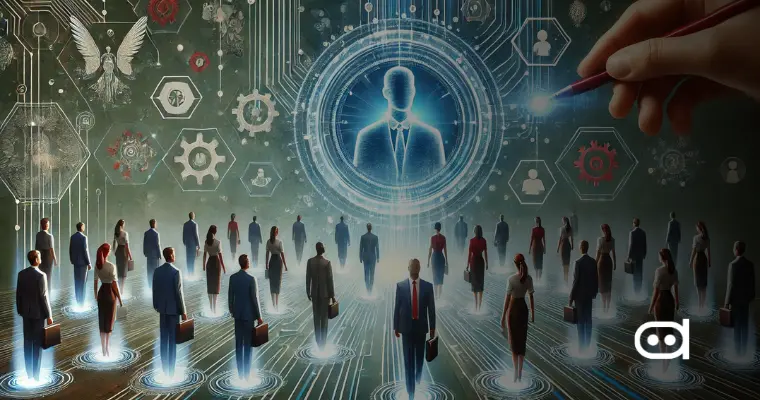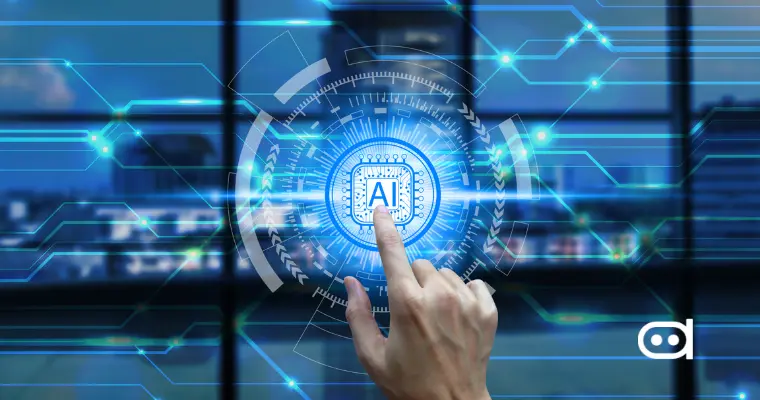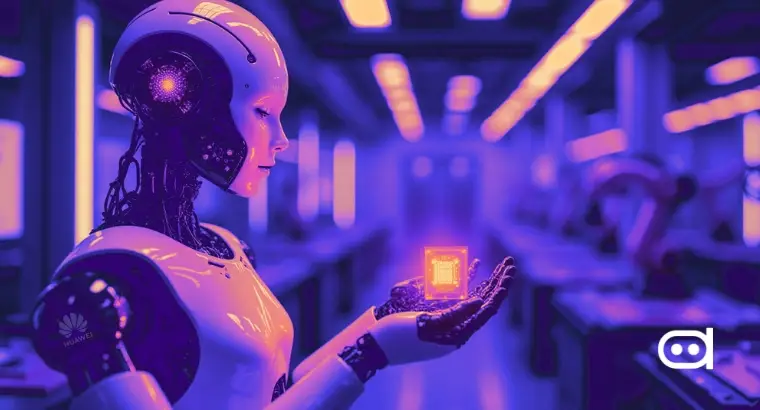
AI Diversity and inclusion in recruitment are major pillars of modern workplace culture, upholding the foundation of innovation, talent, creativity, and collaboration. A diverse workforce brings together people from various backgrounds, experiences, and perspectives, while diversity guarantees that every individual in an organization feels valued and empowered to contribute their full potential. Consistent research shows that organizations that prioritize diversity and inclusion outperform their peers in terms of profitability, employee engagement, and brand reputation.
However, the integration of meaningful diversity and an inclusive environment necessitates deliberate strategies, where AI plays a transformative role. AI offers excellent solutions to age-old problems and obstacles in recruitment and makes identifying and attracting different talent possible while avoiding biases that would prevent true inclusive hiring. AI enables organizations to automate and optimize their hiring processes, resulting in diverse teams that are expected to contribute to commercial success while meeting societal expectations for equity and representation.
The Role of AI in Promoting Diversity and Inclusion
AI has enormous potential to transform recruitment as it can address unconscious biases, streamline processes, and encourage data-driven decisions. By implementing AI tools, organizations can spot gaps early on, track progress toward closing them, and build fairer hiring practices.
Reducing Unconscious Bias in Hiring
Unconscious biases are one of the most significant barriers to reaching the ideal state of diversity and inclusion. Although most human recruiters try to be objective, they cannot escape the context of implicit biases generated by societal experiences or stereotypes. Appropriately designed and implemented AI algorithms can counter these biases by exclusively evaluating candidates based on objective criteria.
For example, by anonymizing resumes and eliminating identifying data, such as names, photographs, and addresses, AI can identify and eliminate hiring bias and evaluate applicants solely on their ability and competency. Standardized metrics evaluate applications, potentially removing the personal subjectivity inherent in manual screening.
Data-Driven Decision Making
Data is the source that makes AI extremely robust when in decision-making. For example, AI can analyze historical hiring data and workforce demographics to identify gaps, trends, and areas for improvement in D&I initiatives. Predictive analytics can then identify underrepresented groups within an organization, guiding recruitment strategies. Data visualization tools integrated with AI could yield actionable insights by tracking the effectiveness of D&I against real-time improvement areas. Hence, such data approaches would ensure that recruitment strategies are both evidence-based as well as outcome-based.
Applications of AI in Recruitment for Diversity and Inclusion
AI has diverse applications that span the entire recruitment lifecycle. From job postings to interviews, AI tools enhance productivity and make employee integration easier.
AI-Powered Job Descriptions
Writing inclusive job descriptions is the first step in acquiring diverse talent, as it attracts employees to apply for positions. Using AI tools, one can evaluate language within job postings to spot exclusive terms and replace them with gender-neutral words. For instance, by replacing the words “competitive” or “dominant” with the words “motivated” or “proactive.” This approach broadens the posting scope to attract the most suitable applicants.
Resume Screening and Shortlisting
The method of manually reviewing resumes is quite time-consuming and subject to bias. AI streamlines the process by using algorithms to match a candidate’s qualifications with the job requirements. These high-end systems can access resumes without taking into account factors such as name or ethnicity, ensuring that the review process is fair. Such tools can also rank candidates using objectively scored variables, which would direct recruiters toward superior talent.
Candidate Sourcing
AI is used to locate and develop diverse talent pools. AI may find candidates through a variety of underrepresented talent channels, including professional networks, niche job boards, and different types of job openings. Predictive algorithms recommend potential candidates who may not have applied for a post but possess the skills and potential to succeed in that role.
Interview Processes
AI diversity recruiting tools make hiring more inclusive by standardizing evaluations across the board. The AI-enhanced videoconferencing interview platform analyzes responses given by candidates, attendees, and other factors to help judgment be as objective as possible. AI guarantees that every interviewee receives the same questions, providing consistency in practice and reducing variability and bias in the interview processes.
Benefits of AI in Advancing Diversity and Inclusion
There are numerous benefits associated with the use of AI in recruitment.
- Faster and unbiased recruitment process: AI automates time-consuming tasks such as resume screening, configuring offers, and scheduling interviews. This allows for faster recruiting while also avoiding human bias, which could interfere with such decision-making processes. Instead of spending hours on these activities, resources may devote that time to more strategic tasks.
- Broader talent pool of suitable candidates: Using AI for the sourcing process broadens the talent pool of suitable candidates, providing an organization with opportunities to recruit talent from non-conventional and under-represented sources. Algorithms in AI are programmed to search for candidates qualifying more with on-the-job competence skills, behavior, and potential and not just on traditional indicators like educational qualifications or previous employers. This leaves a much richer and more diverse talent base.
- Improvement in employee satisfaction and culture in the workplace: Hiring diverse teams encourages employee innovation and creativity. AI enhances inclusive recruitment practices by creating such workplaces in which employees feel valued and respected. This results in increased morale and job satisfaction, which leads to lower turnover rates in the future and a stronger organizational culture.
- Compliance with diversity laws and regulations: Many regions have strict laws that require organizations to show efforts toward fair hiring. Advanced AI-based tools help track these compliance metrics, so an organization can indeed say that it has not only complied with the laws but also advocated fairness.
- Enhanced organizational reputation as an inclusive employer: Organizations attract the most talented talent by being open about their commitment to diversity and inclusion. AI tools strengthen the company’s image, which attracts socially conscientious job seekers. This development elevates them to the forefront of the industry in terms of D&I.
Future of AI in Diversity and Inclusion
AI recruitment tools will play a more significant role in the promotion of diversity and inclusion than they have previously been. They can offer very advanced and real-time bias detection, analytics tools for measuring inclusion, and even AI-driven mentorship programs. However, one must always be mindful that companies could sometimes fall into possible pitfalls, such as algorithmic bias and overreliance on technology at the expense of human judgment.
Conclusion
AI has changed the landscape of recruitment, improving diversity and inclusion. Organizations can utilize AI to build workplaces that represent the communities they serve, ranging from minimizing unconscious bias to improving the hiring process. With the growing adoption of AI-driven tools, the possibility of creating inclusive environments will also increase, empowering every human being with the opportunity to thrive in the future.









